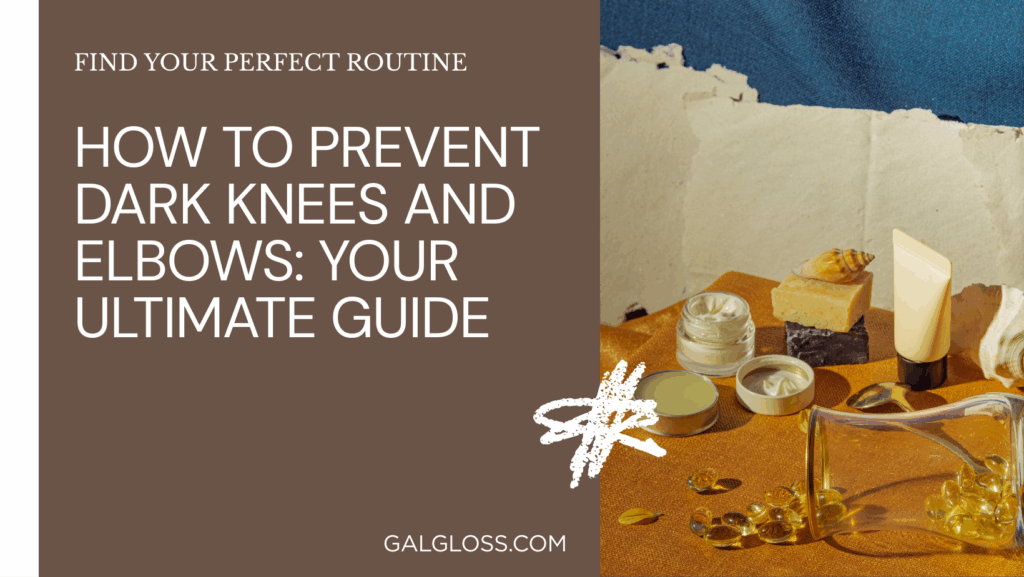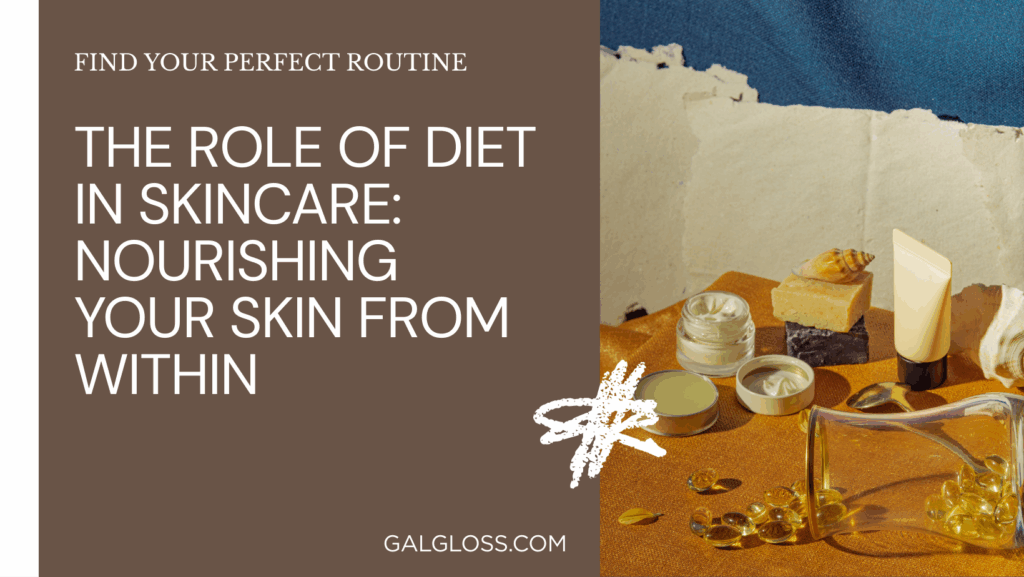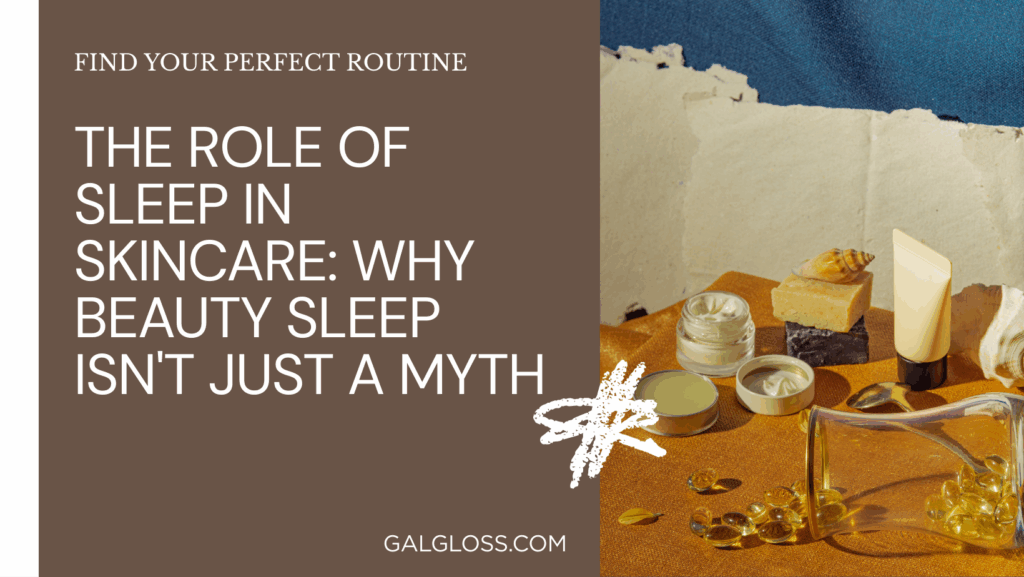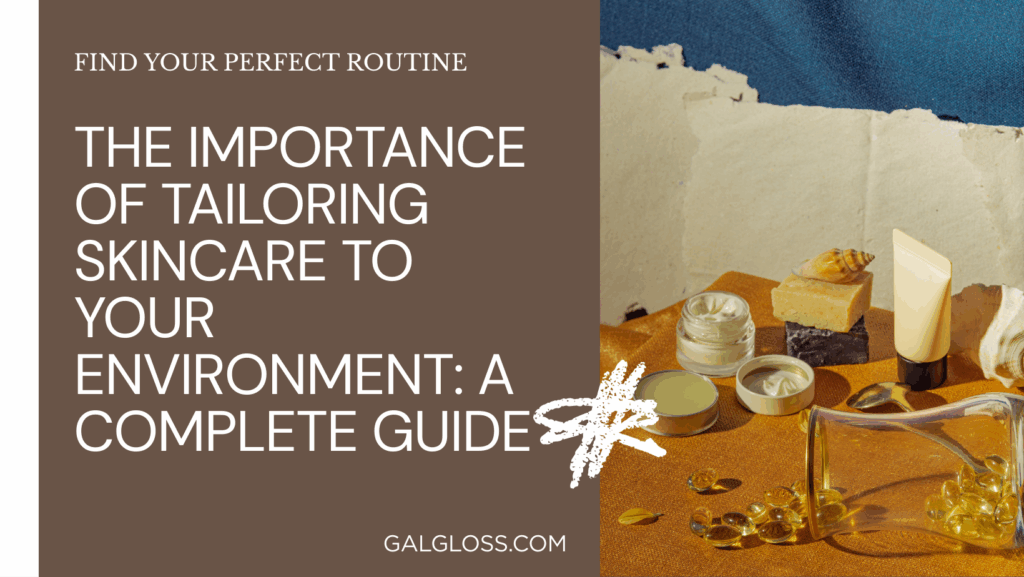Ever looked in the mirror and thought, “Wow, my skin looks as parched as the Sahara”? We’ve all been there. Dry, flaky skin isn’t just a nuisance – it’s a cry for help from your largest organ. But don’t worry, I’ve got your back (and your face, and your elbows…).
Hydrated skin isn’t just about looking good; it’s about feeling good and staying healthy. Think of your skin as a protective shield. When it’s well-hydrated, it’s like a flexible, resilient armour that keeps the good stuff in and the bad stuff out. But when it’s dry? It’s more like a creaky old fence that’s seen better days.
In this guide, we’re diving deep into the world of skin hydration. We’ll explore why keeping your skin quenched is crucial, uncover the secrets to achieving that coveted dewy glow, and debunk some common myths along the way. Whether you’re battling desert-dry skin or just looking to up your skincare game, you’re in the right place.
Understanding Skin Hydration
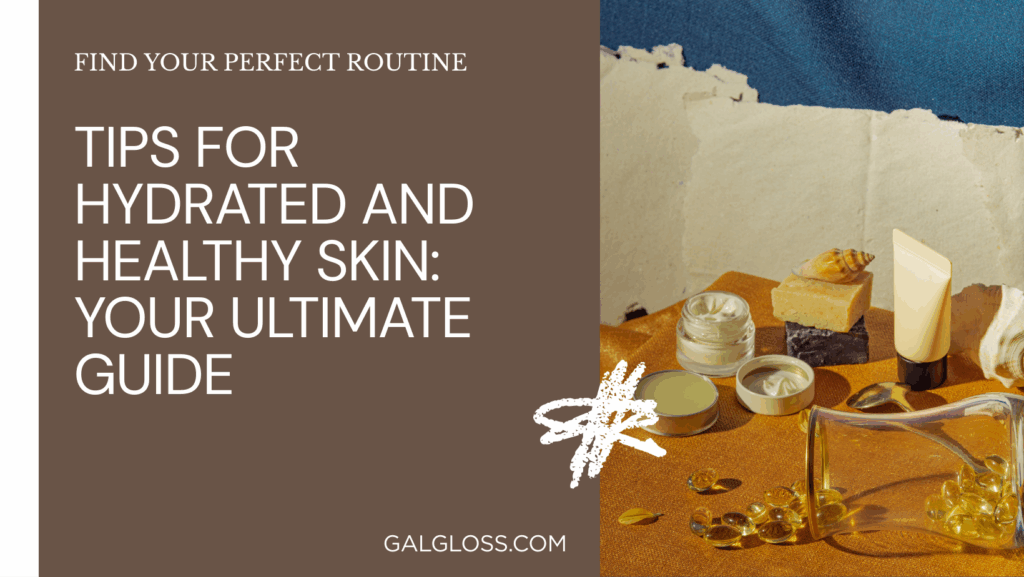
So, what’s the deal with skin hydration? Simply put, it’s about maintaining the right amount of water in your skin. Your skin is like a sponge – it needs to soak up and retain moisture to stay supple and healthy.
But here’s the kicker: your skin is constantly losing water. This process, called transepidermal water loss (TEWL), happens 24/7. Factors like hot showers, harsh soaps, and even the weather can speed up this water loss, leaving your skin drier than a witty comeback.
How do you know if your skin is dehydrated? Look out for these signs:
- Tightness or discomfort
- Flakiness or roughness
- Fine lines appearing more prominent
- Dullness or lack of radiance
The Science Behind Skin Hydration
Let’s get a bit nerdy for a moment. Your skin has three main layers: the epidermis (top), dermis (middle), and hypodermis (bottom). The epidermis acts as a barrier, and it contains natural moisturising factors (NMFs) that help retain water.
The skin’s lipid barrier, made up of ceramides, cholesterol, and fatty acids, plays a crucial role in keeping moisture locked in. When this barrier is compromised, you get increased TEWL and, you guessed it, drier skin.
Top 10 Tips for Hydrated Skin
- Drink plenty of water: It’s a no-brainer, but it bears repeating. Aim for at least 8 glasses a day. Your skin will thank you.
- Use a gentle cleanser: Harsh soaps can strip your skin of its natural oils. Opt for a pH-balanced, sulphate-free cleanser.
- Apply moisturiser correctly: The best time to moisturise? Right after cleansing, while your skin is still damp. This helps lock in that moisture.
- Choose the right skincare ingredients: Look for hydrating heroes like hyaluronic acid, glycerin, and ceramides.
- Protect your skin from sun damage: UV rays can dehydrate your skin faster than you can say “sunburn.” Always use a broad-spectrum SPF.
- Incorporate facial oils: These can help reinforce your skin’s natural lipid barrier. Jojoba and argan oils are great options.
- Use a humidifier: Especially in dry climates or during winter, a humidifier can add much-needed moisture to the air and your skin.
- Eat a skin-friendly diet: Foods rich in omega-3 fatty acids and antioxidants can help keep your skin hydrated from the inside out.
- Limit hot showers and baths: Hot water might feel good, but it can strip your skin of its natural oils. Stick to lukewarm water.
- Get enough sleep: Your skin repairs and regenerates while you snooze. Aim for 7-9 hours of quality sleep.
Best Ingredients for Skin Hydration
When it comes to hydration, not all ingredients are created equal. Here are some top performers:
- Hyaluronic Acid: This molecule can hold up to 1000 times its weight in water. It’s like a moisture magnet for your skin.
- Glycerin: A humectant that draws water from the air into your skin.
- Ceramides: These lipids help form the skin’s barrier and prevent moisture loss.
- Aloe Vera: Known for its soothing properties, it’s also great for hydration.
- Vitamin E: An antioxidant that helps protect the skin’s lipid barrier.
Hydration for Different Skin Types
One size doesn’t fit all when it comes to skin hydration. Here’s a quick guide:
- Dry Skin: Go for rich, creamy moisturisers. Look for ingredients like shea butter and oils.
- Oily Skin: Yes, even oily skin needs hydration! Opt for lightweight, oil-free moisturisers.
- Combination Skin: You might need to use different products on different areas of your face.
- Sensitive Skin: Choose fragrance-free, hypoallergenic products with soothing ingredients like chamomile or allantoin.
Common Skin Hydration Mistakes to Avoid
Even with the best intentions, you might be sabotaging your skin’s hydration. Watch out for these common pitfalls:
- Over-exfoliating: While exfoliation is important, too much can damage your skin’s barrier. Stick to 1-2 times a week.
- Skipping sunscreen: Sun damage can lead to increased water loss. Always use SPF, rain or shine.
- Using harsh products: Alcohol-based toners or harsh scrubs can strip your skin of its natural oils.
DIY Hydrating Face Masks
Want to give your skin a hydration boost? Try these simple DIY masks:
- Honey and Avocado Mask:
- Mash 1/2 ripe avocado
- Mix with 1 tablespoon of honey
- Apply to face for 15-20 minutes, then rinse
- Cucumber and Yogurt Mask:
- Blend 1/2 cucumber
- Mix with 2 tablespoons of plain yoghourt
- Apply for 10-15 minutes, then rinse
- Oatmeal and Milk Mask:
- Mix 2 tablespoons of ground oatmeal with enough milk to form a paste
- Apply for 15-20 minutes, then rinse
Lifestyle Factors Affecting Skin Hydration
Your skin’s hydration isn’t just about what you put on it – it’s also about how you live. Consider these factors:
- Stress management: Chronic stress can wreak havoc on your skin. Try meditation, yoga, or deep breathing exercises.
- Exercise: Regular workouts improve circulation, which can help nourish skin cells. Just remember to cleanse post-workout!
- Alcohol and caffeine consumption: Both can be dehydrating. If you indulge, make sure to up your water intake.
Seasonal Skincare for Hydration
Your skin’s needs change with the seasons. Here’s how to adapt:
Winter Skincare Tips:
- Use a heavier moisturiser
- Don’t forget lip balm
- Consider adding a facial oil to your routine
Summer Hydration Strategies:
- Opt for lightweight, non-comedogenic moisturisers
- Use a hydrating face mist throughout the day
- Don’t skimp on sunscreen
When to See a Dermatologist
While these tips can help most people achieve hydrated, healthy skin, sometimes you need professional help. Consider seeing a dermatologist if you experience:
- Persistent dryness or irritation
- Flaking or peeling that doesn’t improve with over-the-counter treatments
- Any sudden or unusual changes in your skin
Remember, your dermatologist is your skin’s best friend. Don’t hesitate to seek their advice if you’re concerned about your skin’s health.
Conclusion
Achieving hydrated, healthy skin isn’t rocket science, but it does require consistency and the right approach. Remember, your skin is unique, so what works for your best friend might not work for you. Don’t be afraid to experiment (within reason) to find your perfect skincare routine.
The key takeaways? Drink plenty of water, choose the right products for your skin type, protect your skin from sun damage, and pay attention to lifestyle factors that could be affecting your skin’s hydration.
Hydrated skin isn’t just about looking good – it’s about maintaining the health of your body’s largest organ. So treat your skin with the care it deserves. After all, it’s got a big job to do!
Remember, Rome wasn’t built in a day, and neither is perfectly hydrated skin. Be patient, be consistent, and before you know it, you’ll be glowing brighter than a disco ball at Studio 54. Here’s to your journey towards hydrated, healthy skin – may your complexion always be as smooth as this article’s conclusion!
